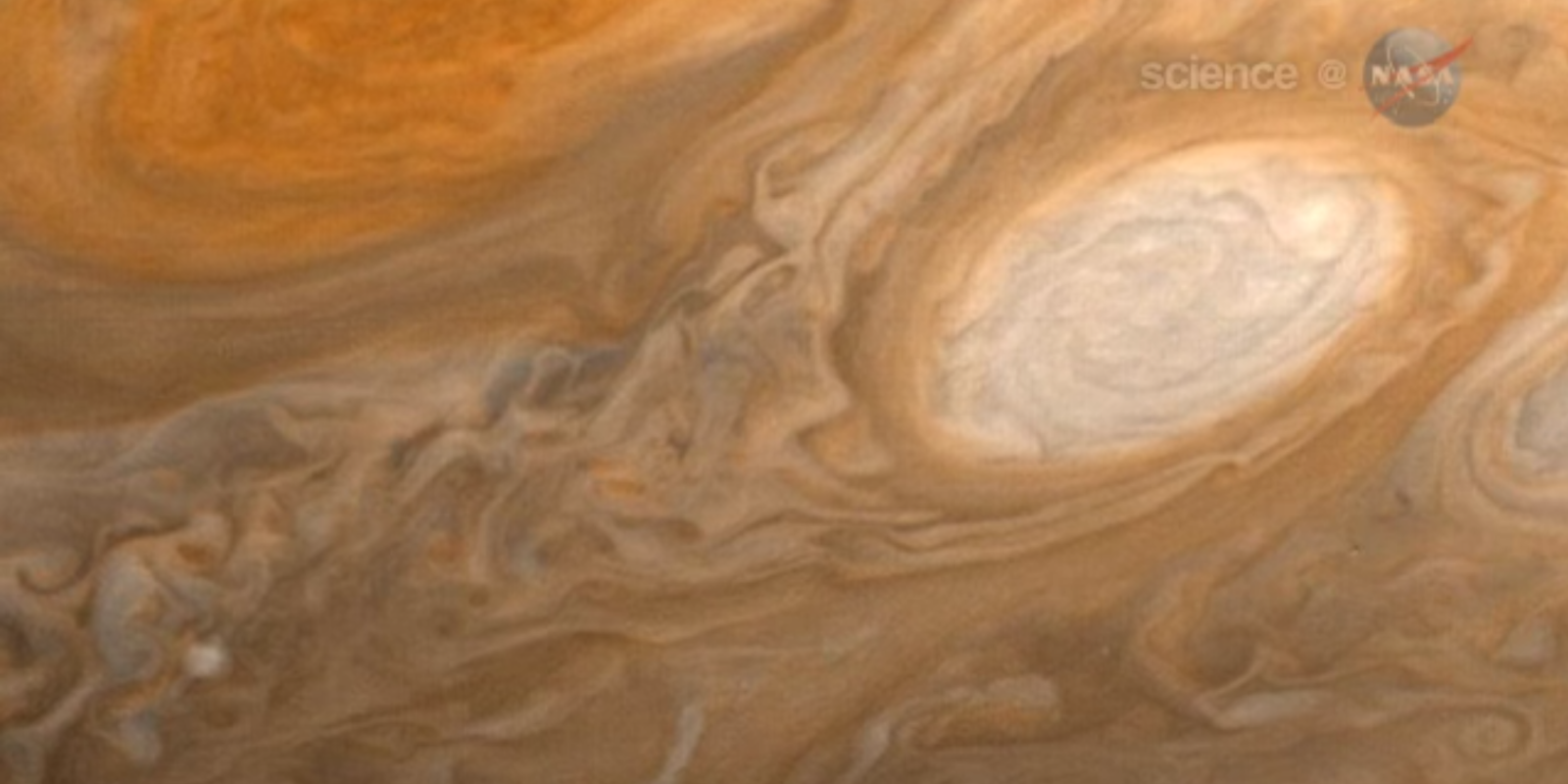NASA’s Juno spacecraft will fly directly over Jupiter‘s famed “Great Red Spot” on Monday, allowing the space agency to make scientific observations and take high-definition photos of the oldest storm in the solar system.
Despite its age, very little is known about the swirling storm that’s visible as Jupiter’s signature spot. Recent data indicates that it may be shrinking in size and could be gone within 17 years. Whatever has allowed it to exist for generations is a mystery that may well be solved by this closer look.
TODAY! @NASAJuno spacecraft will fly directly over Jupiter’s iconic, 10,000-mile-wide storm, aka the Great Red Spot: https://t.co/qi1M8YGqmM pic.twitter.com/S43oCMoquZ
— NASA (@NASA) July 10, 2017
While the scientific potential is exhilarating, Juno’s mission is not without risks. The incredible radiation coming off of Jupiter threatens to damage the orbiter, leaving scientists anxious but ultimately excited about the incredible amount of knowledge that could be gained.
The public even has a potential role in this expedition. The raw images taken by the JunoCam will immediately go online, where talented citizens will have the chance to form the data into full-color photographs. All photos will be reviewed by NASA for scientific accuracy and approved pictures will be released to the public.
Instruments on the spacecraft will collect data on the storm, mapping its structure, temperature, cloud tops, and more. Juno will be closest to the planet, around 3,500 kilometers above the cloud tops, at 9:55pm ET on July 10.
Countless discoveries await, as do a number of breathtaking images one of our solar system’s planetary giants. Keep an eye on NASA’s website over the next few days to see the raw images coming in.
H / T CBC


